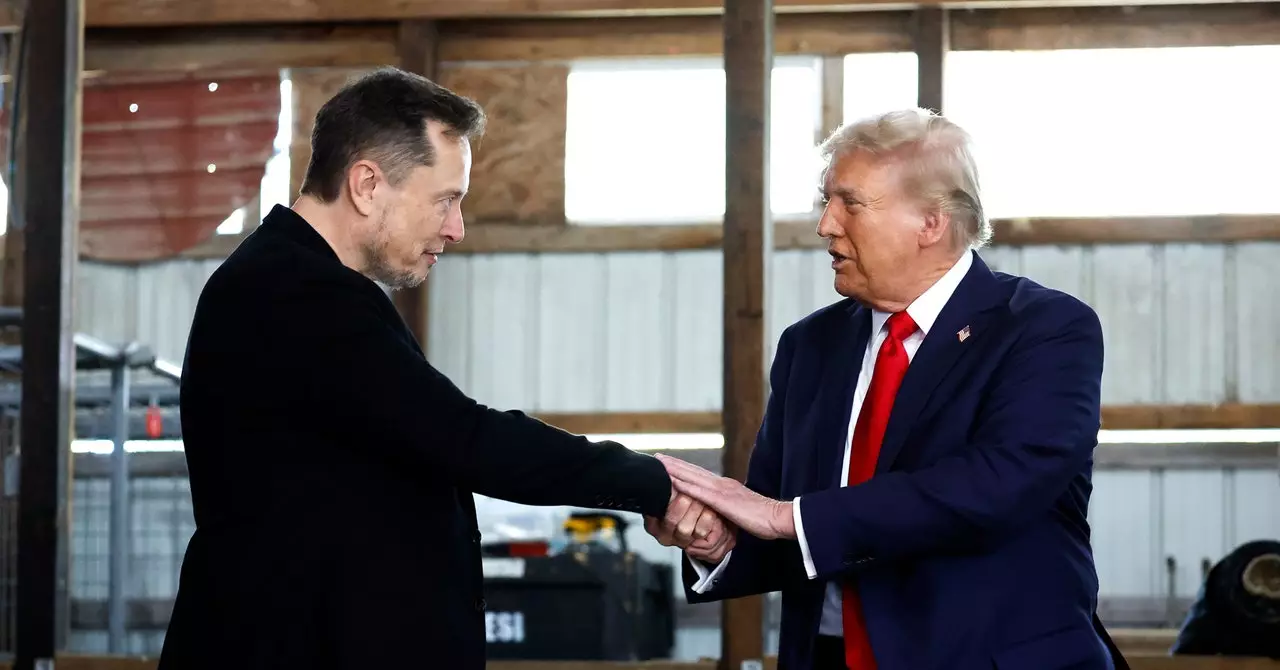The political landscape has always been tumultuous, but the recent electoral outcomes in the United States have left many tech journalists and innovators grappling with a sense of bewilderment. The political shift serves as a stark reminder of the discord between governance and technological progress. As individuals and organizations navigate this uncertainty, it becomes clear that the ongoing technological revolution still holds the potential to reshape the very fabric of society, regardless of the political climate.
The day after the election, a moment of introspection emerged among tech writers, echoing a sentiment of futility regarding the relevance of technology-oriented narratives in the face of a politically charged environment. There’s an inclination to view political events as paramount, overshadowing the significant, long-term changes driven by technology. However, this reaction risks underestimating the profound implications that technological advancements hold for humanity’s future. Despite the noise generated by partisan politics, the relentless march of innovation is a narrative worth pursuing, one that possesses the ability to transcend momentary political upheavals.
Eight years ago, when the shockwaves of an unexpected election reverberated across the nation, I found myself grappling with the question of relevance in tech journalism. Would the innovation narrative hold water amidst the chaos? My conclusion was simple: the importance of technology, particularly in its ability to redefine human interaction, far outweighed the political drama playing out in real-time. Indeed, the very tools we create can either forge paths towards progress or serve as instruments of division, depending on how they are wielded.
Consider the tremendous impact of cutting-edge technologies like artificial intelligence (AI), quantum computing, and decentralized networks in reshaping industries, economies, and societies as a whole. These innovations are not static; rather, they evolve and intermingle, often reshaping societal norms in unforeseen ways. Despite the frequency with which politicians come and go, the arc of technological advancement remains continuous and unyielding, forever altering how we understand our world.
As we stand at this juncture, the thought looms large that our future will be defined significantly by artificial intelligence. The potential of AI is staggering, often termed as “the last invention” humanity will ever need to create. However, even as this pivotal technology promises to revolutionize industries and enrich lives, its evolution is inherently intertwined with political policies and power dynamics. The incoming administration’s stance on regulating AI will undoubtedly shape the trajectory of technological development and its ethical implications.
The juxtaposition of political actions and technological progress could not be more pronounced. Under a new leadership that may prioritize different values, the ways in which AI is developed and deployed could radically shift. The potential influence of powerful figures, such as multi-billionaire entrepreneurs with vested interests in AI, raises ethical concerns about governance and oversight. Such realities serve as a reminder that while technology is the narrative we must explore, we must also remain vigilant about the implications of the political frameworks surrounding its advancement.
In the wake of political developments that could hinder technological progress and innovation, there lies an imperative for tech journalists to persist in chronicling these changes. The conversations surrounding AI, machine learning, and other groundbreaking technologies are intrinsic to our time, yet they also unfold against a backdrop of critical societal implications. Thus, while accountability and scrutiny of political leadership are essential, the fundamental stories of technological innovation must continue to be explored.
As I return to writing and reporting in this context, I remain committed to keeping technology at the forefront of our discussions. The power of human creativity and ingenuity through technology must be celebrated, even as we navigate the impactful stories that arise from the political sphere. The future will undoubtedly see a blend of both sectors where the trajectories of power align intriguingly with innovation.
As we forge ahead, it is essential to respect the notion that technology, particularly AI, stands as a transformative force that transcends political upheavals. It remains the biggest story of our time—a narrative interwoven with human experiences, aspirations, and challenges. The challenge for journalists and technologists alike is to remain focused on the promise of innovation while vigilantly observing the socio-political landscape shaping its application.
As observers and narrators of this change, we must acknowledge the parallels by weaving together technology and politics into a cohesive dialogue on the future. Through these narratives, we can begin to understand how we might navigate a world where both technology and politics play pivotal roles in shaping society, ultimately allowing us to influence change in a way that uplifts humanity.

